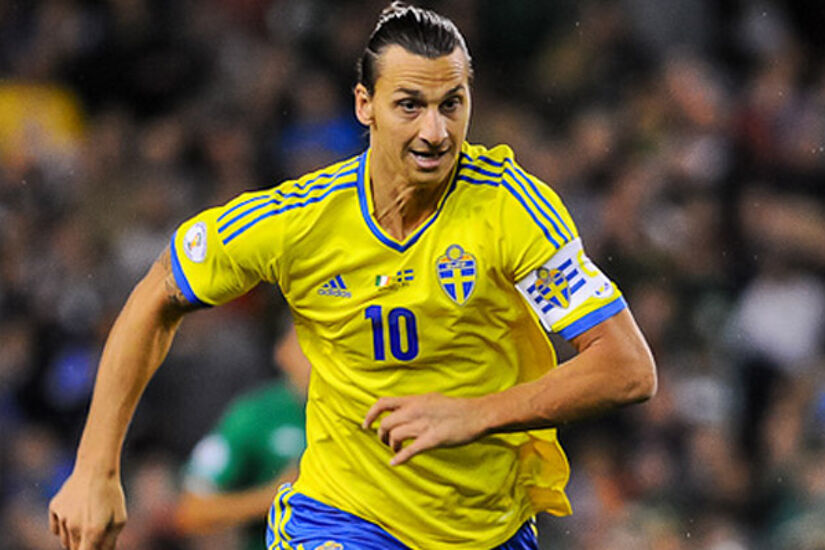Ibrahimovic closes the book on Ireland's World Cup dreams

Credit: Extratime Team (ETPhotos)
After the delight, came despair.
You can probably book somewhere other than Rio for your summer holiday now, because, having fallen to a Swedish side that shared the same limitations, Ireland’s hopes of reaching a first World Cup in 10 years lie in tatters.
It had been billed in perhaps the most Trapattoni of ways as a must-not-lose game. But after a rousing start, half an hour of football which gave Ireland not only the lead but a sense that after all, yes, we can play some good football, came the inevitable crushing disappointment.
And the bit that hurt the most is that, Zlatan Ibrahimovic aside, Sweden are so, so ordinary. At the back, while physically imposing, they moved sluggishly and it was evident from quite early on how they should be targeted.
When Erik Hamren, the Swedish manager, spoke on the eve of the game about both sides being so familiar with each other that there would be no surprises, he probably wasn’t thinking along those lines. But after spending the early stages exploiting their major weakness, Ireland couldn’t maintain the pressure and, inevitably, succumbed to Zlatan and his 10 sidekicks.
Up until Johan Elmander’s equalising header, sneaking half a yard in front of Richard Dunne to glide Mikael Lustig’s cross from the right past David Forde, Sweden were awful.
Ibrahimovic, the most enigmatic of world class players, had been muted throughout the opening period. A couple of sensual touches aside, he was largely ineffective. But with that came a certain sense of danger: players like Zlatan are allowed to be quiet for 89 minutes if they use the other minute to create or score a match-winning goal.
And that is exactly what he did 12 minutes into the second half with a fantastic through ball which allowed Anders Svensson to skip Glenn Whelan’s lazy reach to slot past Forde’s near-post. In truth, Ireland’s defending was sub-standard - an acre of space between midfield and defence allowed Zlatan the room to manipulate the ball through the widening gap and apart from Whelan’s attempt to track Svensson, who was substituted 10 minutes later having emptied his tank, the Irish defence were left staring into space and, surely, towards that early summer holiday.
Having gone ahead, Zlatan became more prominent. His effortless, graceful touch a sight to behold. He doesn’t run, he glides and though it was by no means his greatest ever performance, he showed enough class to warrant the conclusion that, essentially, the difference between the sides was one A-list player. Both nations shared similar faults but, with Austria comprehensively beaten by Germany, it is Sweden who have assumed control for second place.
On a more positive note, let the critics be silenced; perhaps for good. Robbie Keane has endured plenty of flak in the past two years but his goal - as Robbie Keane as goals come - saw him reach another outstanding landmark: sixty international strikes and not yet out. Only four others have previously managed that feat, each name as illustrious as the next. Ferenc Puskas, Sandor Kocsis, Gerd Muller and Miroslav Klose: for Keane to join such company is, regardless of how many goals have been tap-ins, a phenomenal achievement.
That will have meant nothing to him at full-time of course. Like the rest of the team, they trudged off in silence. Heads bowed as the realisation set in that the road to Rio is coming to an abrupt end.
So too is Giovanni Trapattoni’s tenure as manager. Though a glimmer of hope lives on - nine points from the remaining nine, as unlikely as that sounds, could still be enough - it is now time for some forward-planning. His successor at least has a foundation to build on, with plenty of youth in the current squad, but a chapter is closing. And that is probably for the best.

